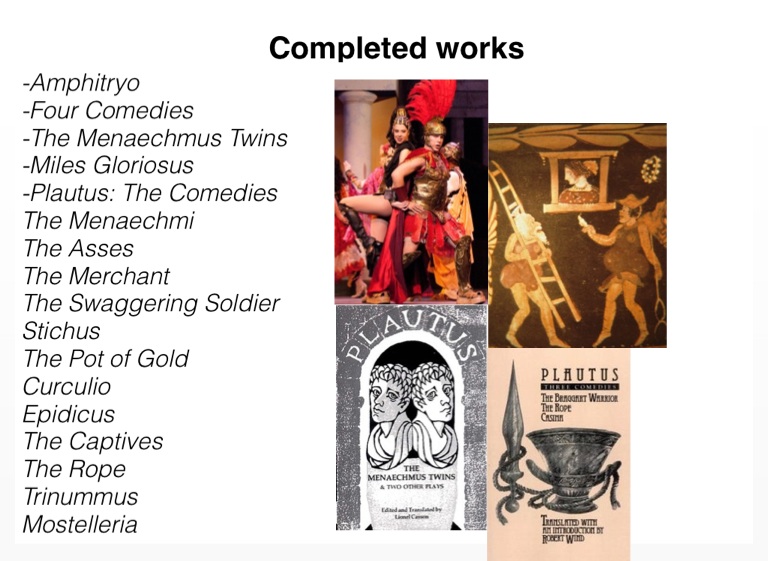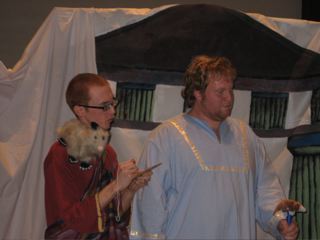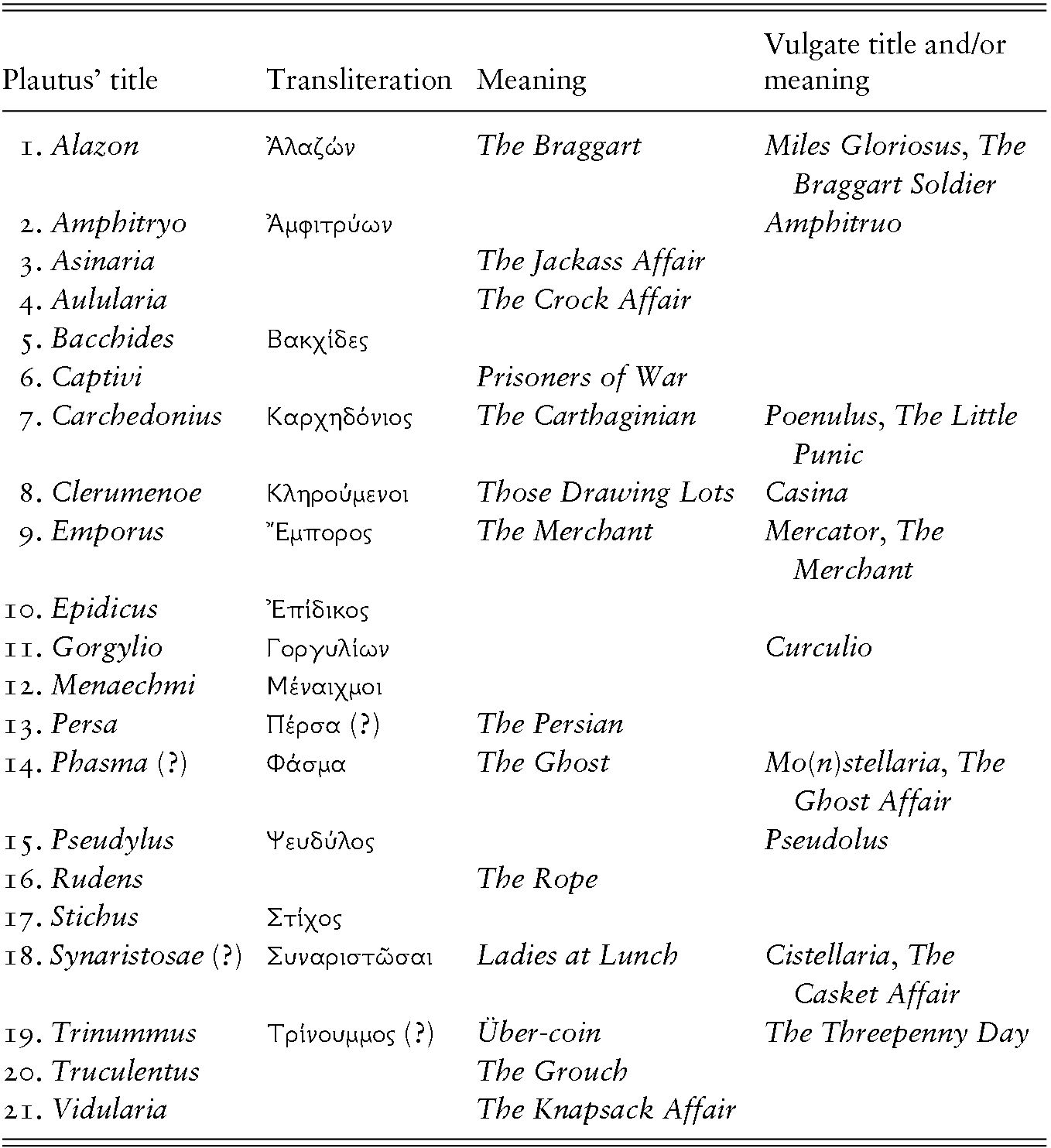

"Of all the Greek and Roman playwrights," Erich Segal writes, "Titus Maccius Plautus is the least admired and the most imitated." In Roman Laughter, the first book-length study of Plautus, Segal argues that this neglected writer, often denounced by scholars for such crimes as "barbarous clownery," merits our serious attention precisely because he was the most successful poet of the ancient world. "Many readers will do as I have done: read Roman Laughter with enjoyment and profit."-Classical Philology. "We certainly need in English a book devoted to Plautus alone and here we have it."-Phoenix. "It is refreshing to find Plautus examined for what he undeniably was-a theatrical phenomenon."-Classical World. Segal has performed the by no means trifling task of making achievement credible and understandable."-Times Literary Supplement. Jerome's pillow as he slept: They were certainly favourites of Luther.

We are told that Plautus' plays were under St.

There are plays of intrigue alone (Bacchides, Mostellaria, Pseudolus) of intrigue with a recognition-theme (Captivi, Poenulus, Curculio) plays which develop character (Auluaria, Miles Gloriosus) others which turn on mistaken identity (accidental as in the Menaechmi imitated by Shakespeare in his 'Comedy of Errors' caused on purpose as in Amphitruo) plays of domestic life (Mercator, Casina, both unpleasant Trinummus, Stichus, both pleasant). The resulting mixture is lively, genial and humorous, with good dialogue and vivid style. But to make his plays 'live' for his audience, Plautus included many Roman details, especially concerning slavery, military affairs, and law, with some invention of his own, especially in management of metres. with Greek places, people, and customs, and a distinctive plot, for popular amusement in a Latin city whose own 'culture' was not yet developed and whose manners were more severe. The basis of all is a free translation from comedies by such writers as Menander, Diphilus, and Philemon. 130 plays were ascribed to him, but at last only 21 were accepted as genuine and in fact 21 (one being incomplete have survived.

at Sarsinia in Umbria, came to Rome, engaged in work connected with the stage, lost his money in commerce, became for a time a baker's help, and for the rest of his life composed comedies. PLAUTUS (Titus Maccius), born about 245 B.C.


 0 kommentar(er)
0 kommentar(er)
